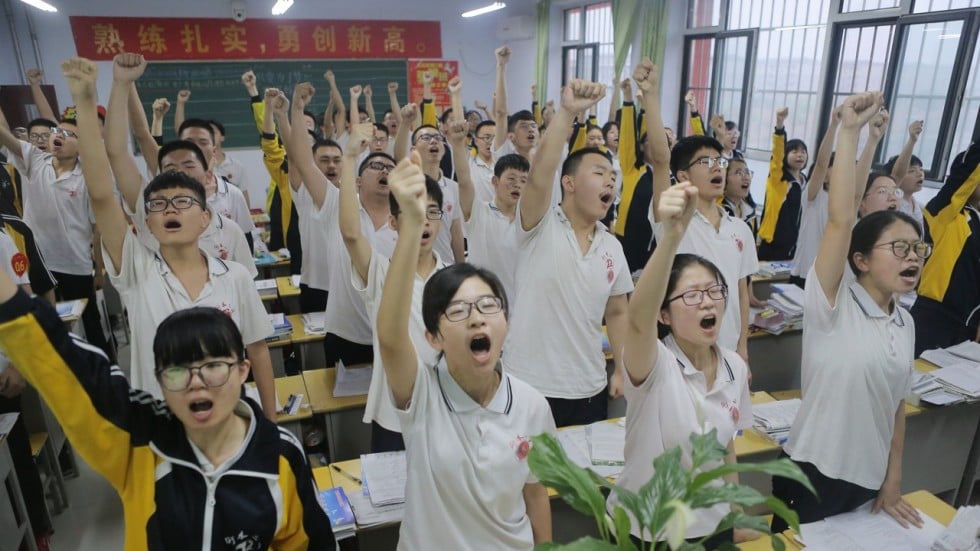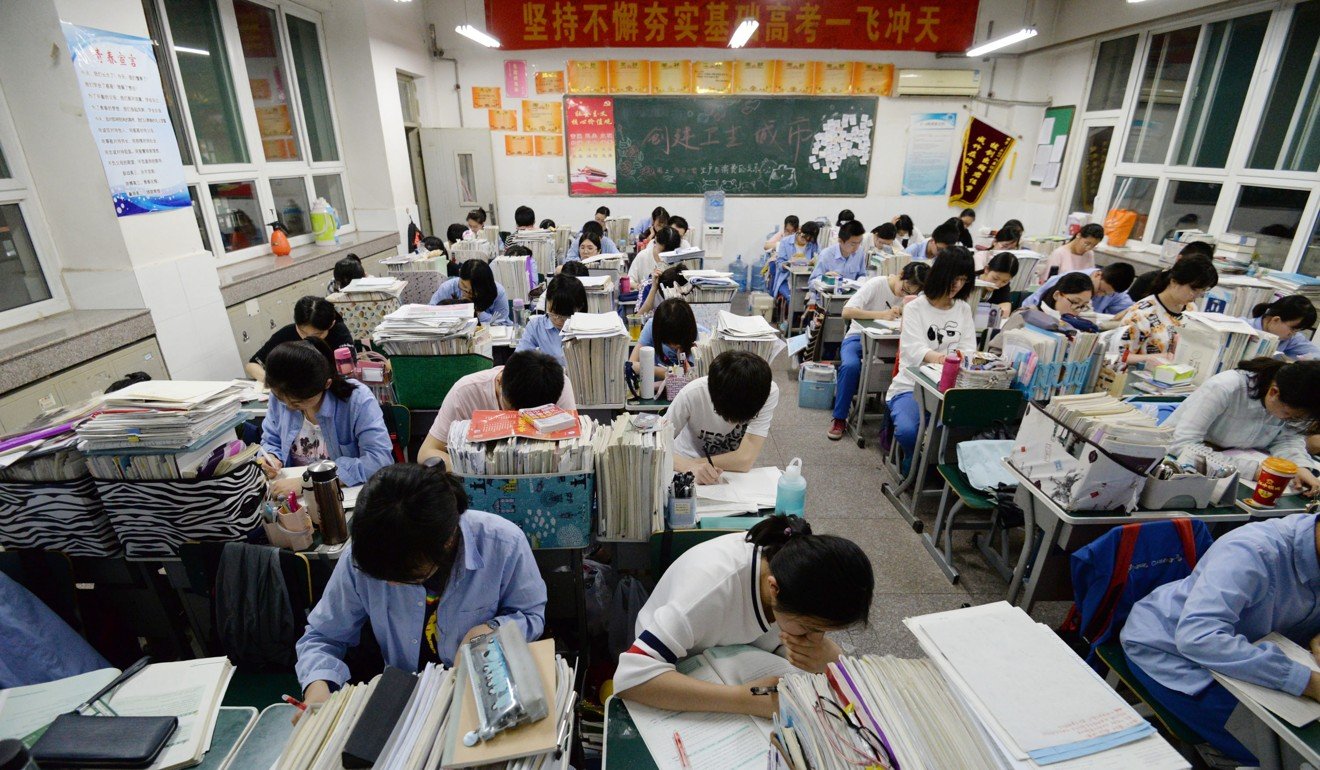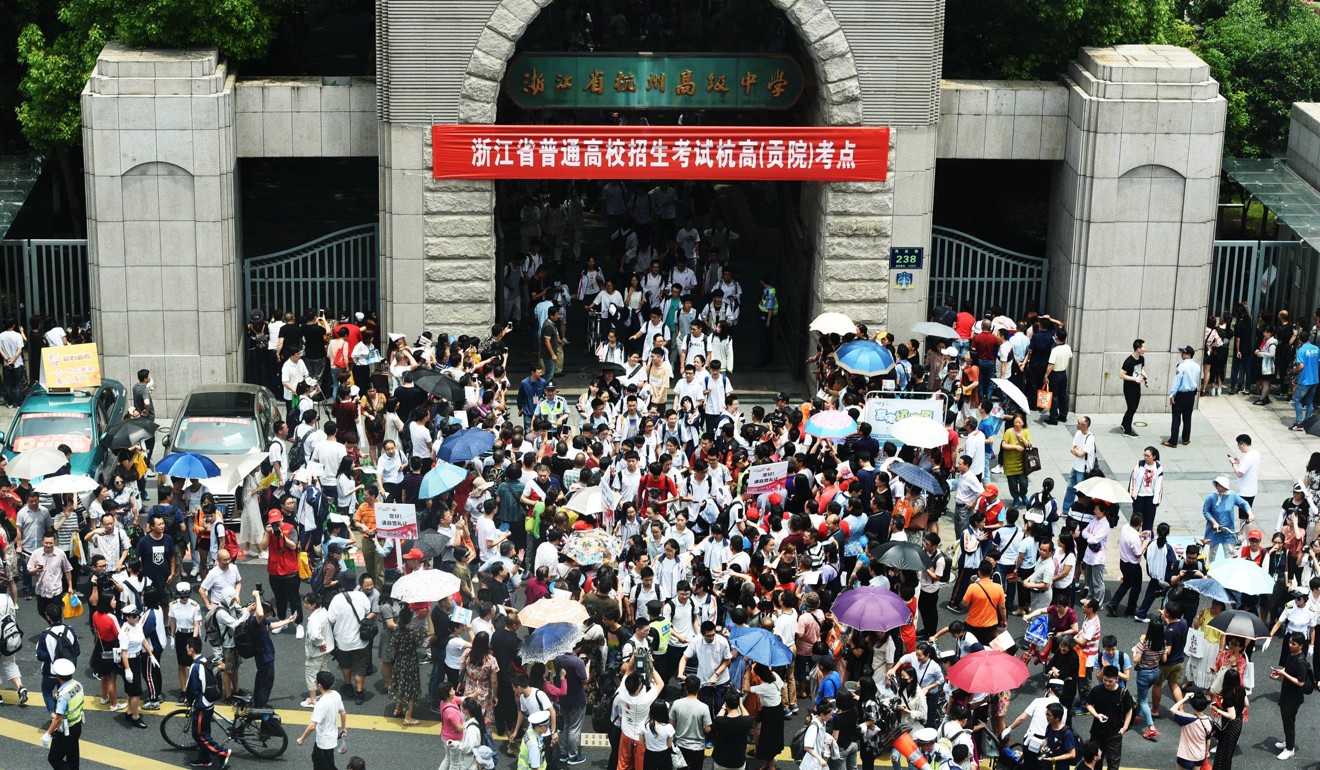Source: SCMP (12/5/18)
No marks for Chinese education bosses sacked after exam results public outcry
Investigation confirms what students and parents suspected. Grades were distorted and results unfair after wrong policy decision.
By Phoebe Zhang

China’s college entrance exams, commonly known as gaokao, are a time of enormous pressure for students, as results can determine their future. Photo: Handout
Two top education officials have been fired while another two are under investigation amid accusations that grades were manipulated in China’s college entrance exams.
Authorities in eastern China’s Zhejiang province launched an investigation following public protests last month over the results of English language test results in the exams, commonly known as gaokao. Protesters complained of unfairness and questioned the scores.
On Wednesday the provincial government announced on social media that an inquiry committee, headed by provincial governor Yuan Jiajun, had concluded there had been a “wrong policy decision” by the Zhejiang Education Department.
The grades of many students had been distorted as a result, leading to unfairness.
[University of Birmingham opens door to students with top grades in Chinese gaokao entrance exam]
The committee called the decision a “serious mistake” and said the original test scores would be reinstated.
There was public praise for the investigation result, with many commenters saying that justice had been restored.
Guo Huawei, Communist Party chief of the Zhejiang Education Department, was asked to resign. The party chief of the exam authority Wang Yuqing and its disciplinary head Chen Yujun were both sacked and put under investigation, while Sun Heng, head of the exam department, was summoned to an admonitory interview with the provincial watchdog.
The exam scandal began on November 24, when results for the English gaokao exam were released, prompting many students and parents to question the grading method.
Some students, who had fared well on objective test questions, such as multiple choice, lost more points on essay questions, leading to a wide-ranging public outcry and suggestions of under-the-table manipulation of grades.

High school students study late into the night when preparing for China’s annual college entrance examinations, known as gaokao. Photo: EPA
In response, the Zhejiang education examination authority issued a statement but this further fuelled public anger.
The authority said that after the tests were graded it had found some of the test questions were significantly harder than the previous year’s. To level the different tests, the committee decided to “curve” the points for some of the reading and essay questions.
Many people questioned the principle behind curving the grades and called for more transparency, demanding to know exactly how it was applied.
A week later, on December 1, the Zhejiang provincial government bowed to public opinion and announced that a committee had been established to investigate the matter.

Students leaving school on the first day of China’s college entrance exam, or gaokao, in Zhejiang province earlier this year. Photo: AFP
Students are under great pressure to study for the exams and the public keeps a close watch for possible unfairness or corruption.
“Gaokao is a serious ‘war’, parents, students and teachers put in so much effort and money,” one internet user wrote in response to the Zhejiang results. “In the gaokao, every point counts. Is it fair to curve the points?”
“I have been studying until midnight every day and worked so hard that I lost so much of my hair. I was happy with the English exam because I lost only a couple of points on the objective questions, but I only got 136 out of 150, while those who didn’t study got 135, or even 140. How am I supposed to feel?” a student wrote online.